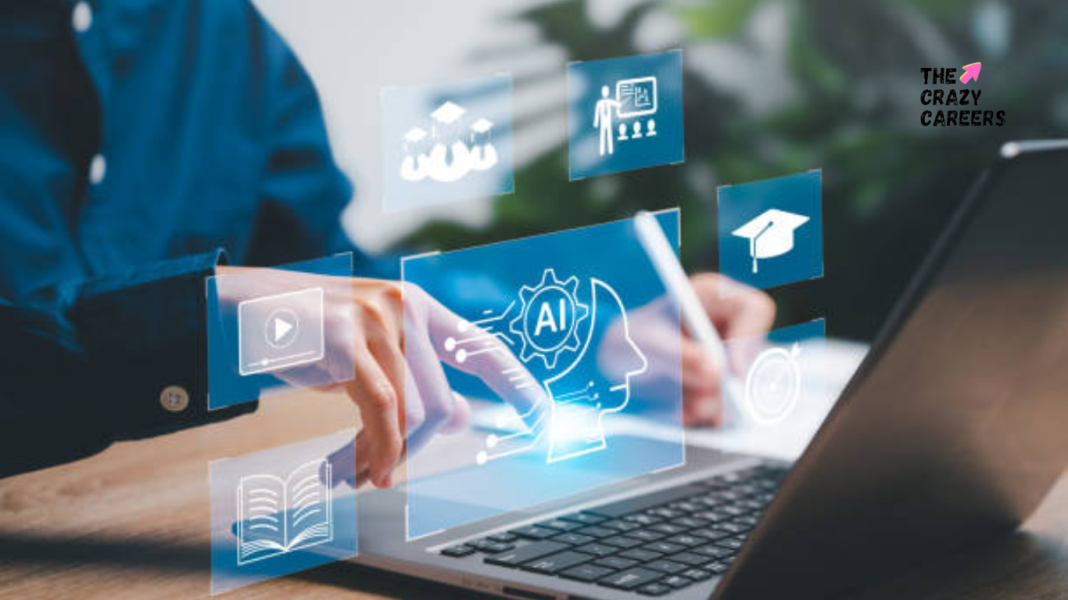Education is evolving rapidly, with technology transforming how teachers work. Among these advancements, AI-powered auto-grading stands out as a game-changer. This innovative tool addresses the challenges of traditional grading methods while enhancing efficiency and reducing stress.
Watch our Podcast | The Crazy Careers Podcast
The Problem with Traditional Grading
Grading assignments has always been a time-consuming and tedious process for educators. Teachers must meticulously read essays, verify answers, and provide feedback. This requires immense focus and effort, often leaving teachers mentally and physically drained.
Moreover, grading is repetitive, especially during exams or major assignments. Teachers face tight schedules, extracurricular responsibilities, and unique student needs, which adds to the pressure. This constant workload can lead to burnout, affecting their productivity and well-being.
How AI-Powered Auto-Grading Helps
AI-powered auto-grading systems offer a practical solution to these challenges. They can assess multiple-choice questions, short answers, and even essays with remarkable accuracy. Teachers simply upload assignments, and the AI processes them in seconds, saving hours of manual work.
One major benefit is the speed. AI can deliver instant results, enabling students to receive faster feedback. This quick turnaround improves the learning process by helping students identify and correct mistakes promptly.
Additionally, AI ensures consistent and unbiased grading. Unlike human grading, which can vary due to mood or bias, AI uses fixed criteria. This creates a fairer evaluation process for all students.
AI Enhances, Not Replaces, Teachers
Despite its efficiency, AI-powered auto-grading does not replace teachers. Educators remain essential for inspiring and mentoring students. AI serves as a supportive tool, handling repetitive tasks while teachers focus on meaningful interactions.
For example, AI can evaluate the accuracy of an answer but cannot understand the reasoning behind it. Teachers, on the other hand, can provide personalized feedback that motivates students to improve. This balance ensures students benefit from both technology and human insight.
The Advantages of AI in Education
AI-powered auto-grading reduces teacher stress by automating labor-intensive tasks. Teachers can dedicate more time to developing lesson plans, mentoring students, and engaging in professional growth.
Moreover, AI tools promote standardization, ensuring all students are graded fairly. This consistency helps build trust in the grading process and improves overall learning outcomes.
The use of AI also enhances productivity. Teachers can manage their time better and avoid burnout, creating a healthier work environment. With less stress, they can focus on their passion for teaching.
A Balanced Future with AI
The future of education lies in a balanced approach, where technology complements human expertise. AI-powered auto-grading simplifies the grading process, making it efficient and less stressful. At the same time, teachers continue to inspire, guide, and nurture students.
By automating repetitive tasks, AI empowers educators to prioritize impactful activities. Teachers can focus on building connections, fostering creativity, and shaping the minds of tomorrow.
Also Read | Inspiring Startup Story of Saumya Singh Rathore and WinZO
AI-powered auto-grading is transforming education by reducing teacher stress and enhancing efficiency. This technology streamlines grading while preserving the critical role of educators. It’s a partnership between humans and machines, ensuring a better, stress-free educational experience.
By embracing AI, teachers can focus on what truly matters—teaching and inspiring students to achieve their best.
About the Author – This article is authored by Mr. Manish Mohta, Founder of Learning Spiral




